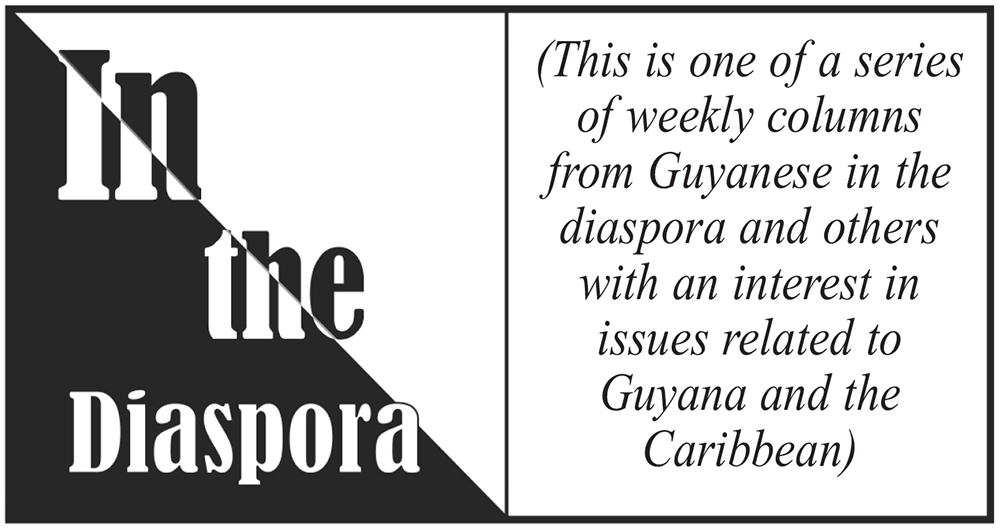Under the banner #WithHaitianRefugees, Freedom Imaginaries is urging CARICOM to establish a rights-based regional approach for the protection of Haitian migrants and refugees as leaders prepare to meet in Jamaica today, March 11, to discuss the dire situation in Haiti. In an open letter to the chairman of CARICOM, Dr Irfaan Ali, Freedom Imaginaries expressed concern about the escalating cycle of migration-related abuse targeting Haitians on the move in the Caribbean and set out the parameters of a rights-based, region-wide response.
Freedom Imaginaries, a Jamaica-based human rights organization, is currently representing 38 Haitian asylum seekers who arrived in Jamaica in July 2023. The organisation has consistently expressed concern about what it deems as repressive measures that Jamaica and other Caribbean countries have adopted in response to Haitians on the move, including forced returns and collective expulsions without due process or an individualised assessment of protection needs. According to Freedom Imaginaries, these practices violate international law obligations, including the prohibition of refoulement. The organisation’s founder, Malene Alleyne, is an international human rights lawyer, called to the bar in Jamaica and Guyana.
The full text of Freedom Imaginaries’ open letter is reproduced below.
OPEN LETTER TO MEMBERS OF THE CARIBBEAN COMMUNITY REGARDING A RIGHTS-BASED REGIONAL APPROACH FOR THE PROTECTION OF HAITIAN MIGRANTS AND REFUGEES
Your excellency,
I hope this letter finds you well. I am writing to express Freedom Imaginaries’ deep concern about the escalating cycle of migration-related abuse targeting Haitians who seek refuge in Caribbean countries and to call for a rights-based regional approach for protection.
Amid the devastating crisis in Haiti, some Caribbean countries are carrying out repressive measures against Haitian migrants and refugees, with reports of arbitrary detentions, forced returns, and collective expulsions without due process or an individualised assessment of protection needs. Even as CARICOM leaders convene in Jamaica to address the rapidly deteriorating situation in Haiti, Jamaica is seeking to forcibly return 37 Haitian asylum seekers to a country in the throes of catastrophic violence, without giving them an opportunity to be heard. This is concerning since, as your excellency has stated, “the situation on the ground remains dire.”
International law leaves no room for doubt: the forced removal of people to a place where they may face risk of persecution, torture or other serious or irreparable harm constitutes refoulement, which is strictly prohibited under international law. This obligation is set out in the Convention relating to the Status of Refugees and its 1967 Protocol (Refugee Convention); and is a norm of jus cogens that does not allow for any derogation. To safeguard the principle of non-refoulement, the UN Refugee Agency has issued a non-return advisory for Haiti, calling upon States to suspend the forced return of Haitians to their country due to unrelenting violence, including kidnappings, murders, and systematic practices of sexual violence.
The Refugee Convention also establishes the principle of non-penalisation for irregular entry, which means that Haitians fleeing persecution should not be criminalised for “illegal entry”, nor excluded from refugee status on that basis. The Refugee Convention only refers to narrow exclusion criteria, which relate to persons who have committed serious crimes. These exclusion criteria must be assessed in each individual case in a manner which does not undermine the integrity of international protection.
Further, we recall that the Caribbean Court of Justice has emphasized that CARICOM nationals who seek to enter Member States are entitled to certain rights and procedural guarantees, including the right to consult with an attorney and the right to access the courts. These guarantees are pillars of the constitutional traditions that preserve the fundamental values of democracy in CARICOM Member States. Without them, the aspiration of constitutional democracy governed by the rule of law will crumble.
In light of the foregoing, we urge CARICOM states to reform their asylum procedures and adopt a rights-based response to Haitians fleeing persecution, with strict adherence to the principle of non-refoulement and the rule of law. This entails a requirement to establish effective procedures for the individualised assessment of protection needs and exclusion considerations that may arise in individual claims.
In addition, under the banner #WithHaitianRefugees, we call upon CARICOM – with the support of the international community and multi-stakeholder groups – to establish a rights-based regional approach to ensure the protection of Haitians on the move in the Caribbean, in line with their international obligations and principles of humanitarian assistance, protection, cooperation, and international solidarity.
In particular, we call for region-wide action based on four main pillars:
Full and inclusive implementation of the Refugee Convention, including through the suspension of forced returns in accordance with UN non-return advisories;
Access to territory and efficient asylum procedures;
Solidarity and shared responsibility; and
Durable solutions.
To operationalise this approach, we call on governments and stakeholders to establish a regional inter-agency coordination platform for Haiti to implement humanitarian, protection, and socio-economic integration activities to assist the situation of Haitian refugees and migrants.
Your excellency, we support your call for a “clear message of unity between CARICOM and the international community as we work together to provide the critical support to the Haitian people at this time of crisis for them.” This support must necessarily involve international solidarity for the protection of Haitians who seek refuge at our shores. We stand ready to engage with CARICOM on this issue and sincerely appreciate your kind attention.
Most respectfully,
Malene C. Alleyne
International Human Rights Lawyer
Freedom Imaginaries






